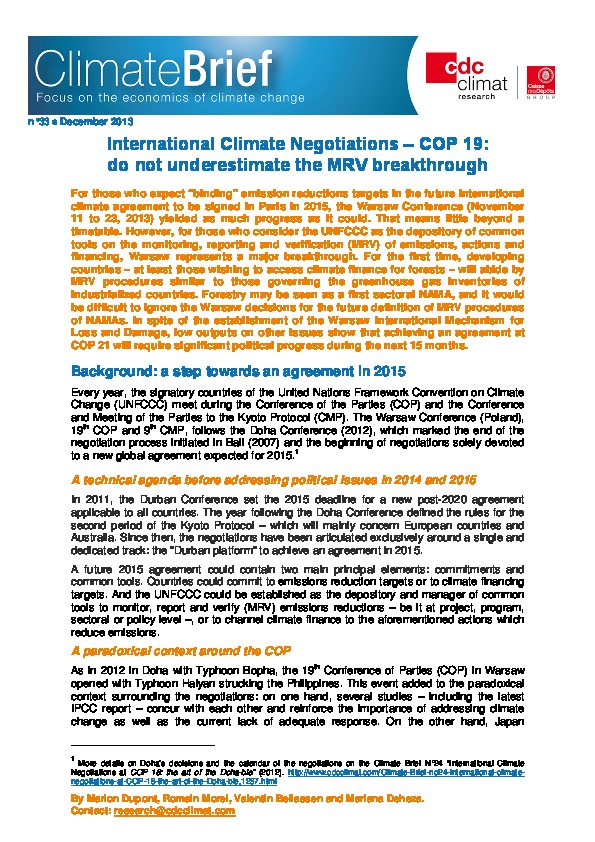International Climate Negotiations – COP 19: do not underestimate the MRV breakthrough
By Marion Dupont, Romain Morel, Valentin Bellassen and Mariana Deheza
For those who expect “binding” emission reductions targets in the future international climate agreement to be signed in Paris in 2015, the Warsaw Conference (November 11 to 23, 2013) yielded as much progress as it could. That means little beyond a timetable. However, for those who consider the UNFCCC as the depository of common tools on the monitoring, reporting and verification (MRV) of emissions, actions and financing, Warsaw represents a major breakthrough.
For the first time, developing countries – at least those wishing to access climate finance for forests – will abide by MRV procedures similar to those governing the greenhouse gas inventories of industrialized countries. Forestry may be seen as a first sectoral NAMA, and it would be difficult to ignore the Warsaw decisions for the future definition of MRV procedures of NAMAs.
In spite of the establishment of the Warsaw International Mechanism for Loss and Damage, low outputs on other issues show that achieving an agreement at COP 21 will require significant political progress during the next 15 months.
